I was a little bit worried about the cycling, but the guides and the TT leader were really helpful and supportive, and it turned out to be the highlight of the trip! It was amazing.
Jane R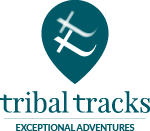
Location
Difficulty
Accommodation and Meals
Lodge, Hotel, Village Homestay
Duration
10
Meeting Point
Kota Kinabalu
Annual Leave
6 days off work
Group Size
Up to 20
Seasons
March, April, June to September.
Walking Distance
110km (approx)
Summit Mount Kinabalu (4,095m): Conquer Borneo’s highest peak, navigating bare granite slopes and high-altitude terrain for a breathtaking sunrise above the clouds.
Sea to Summit Trek: Begin your journey at the South China Sea, then push through remote villages, rice paddies, and dense jungle on this stunning trek.
Endurance: Face 20km+ trekking days, steep ascents, and humid jungle conditions, testing your stamina before the ultimate steep climb to the 'roof of Southeast Asia.'
All the info you need
Trip Details
We created this unique challenge following a request from one of our clients who wanted an adventurous physical challenge. And what a challenge this is - trek from sea level (the South China Sea), all the way to the very top of Mount Kinabalu which stands proudly at 4095m.
Embark on an this epic journey that will test your endurance, immerse you in local culture, and take you from the pristine coastline of the South China Sea to the 4,095m summit of Mount Kinabalu. This adventure is not for the faint-hearted—it’s a test of physical and mental stamina, with over 110km of trekking through jungle, remote villages, and the rugged high-altitude terrain of Malaysia’s highest peak.
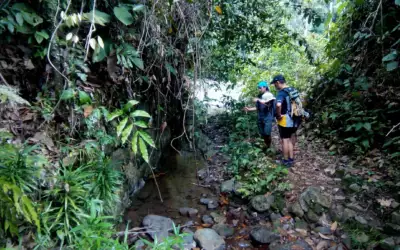
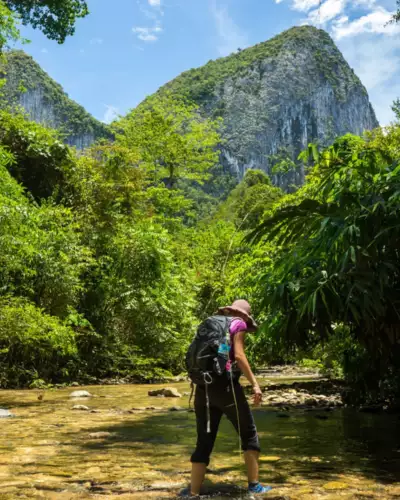
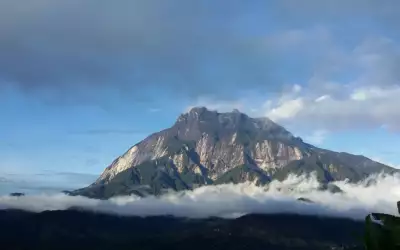
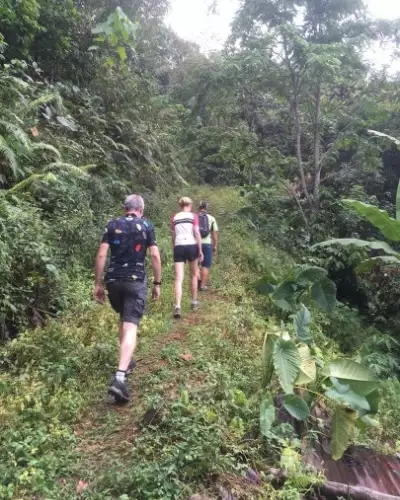
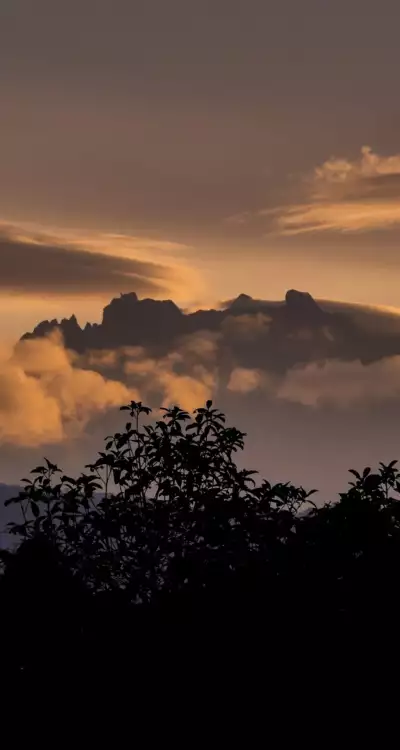
Trip Details
Flight to Kota Kinabalu
We fly to Borneo (BKI - Kota Kinabalu) where we will be met by our friendly local team before heading to our twin-share hotel in central Kota Kinabalu. We'll settle in, enjoy a team briefing from our Tribal Tracks leader and prepare for the challenging days ahead.
Accommodation and Meals
Twin-share at a hotel in KK, dinner.
South China Sea to Nr Kota Belud 20km
Your journey begins at Abai Beach, where the waves of the South China Sea crash against golden sands. From here, a 20km trek takes you through remote native villages, winding roads, and rugged countryside. The day ends with an authentic Bajau homestay, offering a rare glimpse into the lives of the ‘Sea Gypsies’—renowned for their deep connection to the ocean.
Accommodation and Meals
Full board, homestay
Kota Belud to Tambatuan 20km
Step deeper into Borneo’s countryside as you trek 20km through rolling terrain, surrounded by untouched wilderness. The humidity, river crossings, and uneven paths add to the challenge. A night in Tambatuan village brings you closer to local traditions and warm hospitality.
Accommodation and Meals
Full board, homestay
Tambautuan to Lobong village 15km
Today we weave through rice paddies, fruit plantations, and dense secondary jungle. The terrain becomes more rugged, and the jungle canopy thickens. Arriving at Lobong village, you’ll rest in a traditional homestay surrounded by towering peaks.
Accommodation and Meals
Full board, homestay
Lobong to Kiau Village 15km
Today’s 15km trek brings you closer to the foothills of Mount Kinabalu, with the elevation beginning to rise noticeably. Climbing through lush forests and mountain trails, you’ll experience the true wilderness of Borneo before arriving at Kiau village, where our guides will share their mountain legends and traditions.
Accommodation and Meals
Full board, homestay
Kiau Village to Kinabalu Park Lodge 20km
Today's 20km push through rugged mountain terrain leads you to a lodge on the outskirts of Kinabalu Park, the gateway Malaysia’s highest peak.
Accommodation and Meals
Full board, homestay
Trek to the rest house: 8km (steep)
A short 2km trek takes you to Timpohon Gate, where you register for the climb. Now we have a 6km climb up steep, rocky trails to the rest house at 3,250m. The breathtaking views will fuel your determination and prepare you for tomorrow's summit day.
Accommodation and Meals
Full board, rest house
Summit Mount Kinabalu: 8km
Today, we rise before dawn for the final 2km climb to the summit of Mount Kinabalu (4,095m). The bare granite slopes, sheer drops, and high-altitude air make this a heart-pounding ascent. As the sun rises over Borneo, you'll be able to see where you started - the South China Sea.
We have a tough descent back to Timpohon Gate then we'll transfer to the luxurious 400-acre beach resort Shangri-La Rasa Ria to relax and reflect on our accomplishment.
Accommodation and Meals
Full board, Shangri-La Rasa Ria
Return to airport, or optional extension
Today we bid farewell to Borneo, you will be transferred to Kota Kinabalu airport for your flight home.
Alternatively, you can choose to add an extension (at additional cost) to your adventure and head to Sandakan to see the Orangutans and Kinabantangan River as follows:
Day Eleven: Fly to Sandakan and transfer to Sepilok. Visit Sepilok Orangutang Sanctuary and the Sun Bear Conservation centre. In the evening we’ll visit the Rainforest Discovery Centre. Overnight Sepilok Jungle Resort and full board.
Day Twelve: Transfer to Kinabatangan via Gomantong Caves. Evening river cruise. Overnight Kinabatangan Lodge and full board.
Day Thirteen: Morning and evening Kinabatangan river cruises. Overnight Kinabatangan Lodge and full board.
Day Fourteen: Morning cruise, after breakfast transfer to Sandakan airport for flight home. Breakfast.
Accommodation and Meals
Breakfast
Trip Details

Trip Details
In a nutshell, almost everything!
This is what you will need to buy/source yourself.
It is important that you read the itinerary carefully, and take account of the rating we have given it.
Although our challenges are not technical, they do require a good degree of physical fitness. The conditions will require stamina and strength, which you should recognise and train for. This will be a much better experience if you are fit and prepared. You should feel comfortable walking 6-8 hours per day.
Tribal Tracks considers the safety of all of its participants and staff to be a top priority, and as such we have thorough safety systems in place.
In the event of an injury, we have an evacuation plan in place for all elements of the trek route. We do ask that you look after yourself during the trek in the following way, as this will help avoid unnecessary problems:
It is a requirement of Tribal Tracks booking terms and conditions that each supporter must hold their own travel insurance, which covers the trip and the activities they are doing. Read more here.
We advise you to put insurance in place as soon as possible, ideally on booking so you are covered immediately. Your insurance must be valid and in date, covering the entire period that you are travelling for, including the return journey home. It should cover medical and personal accident risks, and should include repatriation costs and air ambulance or helicopter rescue services, where appropriate.
Tribal Tracks has 100% Financial Protection and has a trust account with the Protected Trust Service, member number 5566.
This means that all client monies paid to Tribal Tracks are held in our dedicated trust account, which is supervised by an independent trustee. This means that in the very unlikely event that Tribal Tracks ceases to trade, your money is safe. For more information, please visit this link. Any flights booked for you by Tribal Tracks will be ATOL-protected under our own ATOL certificate.
We know that the unexpected can happen.
While you are away, things can happen at home and people may need to get in contact with you. This can be tricky when you are in remote areas. So, shortly before departure, we provide you with an Emergency Procedure document to distribute to your nearest and dearest. This sets out how to contact Tribal Tracks and the steps Tribal Tracks will then take to get in contact with you.
In setting the maximum size of our groups, we take a number of factors into account.
Altitude, degree of difficulty, the terrain, the climate and time of year, all determine the maximum group size. Sometimes it will be 20, sometimes it will be 8-14, but safety is always our priority.
You will be accompanied by a Tribal Tracks UK Leader, Mountain Leader qualified, as well as supported by our local, in-country guides.
It is really important that you are well prepared for your physical challenge and that you are confident that you will be able to fully participate.
Although our leaders are well trained to deal with different capabilities, if they have any concerns about someone’s ability to safely partake in the trek, or their impact on other people’s enjoyment, we authorise them to take necessary action which, in some circumstances, may involve asking someone to step out of the trek. Although this is a very rare occurrence, by booking this trip you agree to section 11 of our Booking Conditions which clearly states that our leaders have the authority to do this. In these circumstances, we will ensure anyone sitting out is safely provided for and offered alternative options where possible. Refunds will not be provided for activities missed and customers may be liable for additional costs incurred.
At Tribal Tracks, Responsible Travel is enormously important to us, and our commitment to responsible travel is evidenced in every itinerary that we prepare.
Core to our business is the belief that holidays can and should be enjoyable to the traveller but should be conducted in a socially, environmentally and economically responsible manner which brings benefit to local communities. This is implemented through a variety of measures which can be found in our Responsible Travel policy. We encourage you to read this and to play your own part in travelling responsibly.
Trip Details
One of the most common pre-trip questions we receive is all about what to pack, and what the essential items are. This is a list of recommended kit to take. We have tried to pare down this kit list to the absolute musthaves for your trek, but above all you should use your common sense and your own personal preferences when you are packing.
Check out our additional notes at the bottom of this list.
Trip Details
The trek is a challenge. We will be walking for a long time over sometimes challenging terrain with steep ascents and descents.
The best way to build endurance fitness is to start with some gentle walks and gradually build up both the distance and duration over the next few months. In the last 2 months, we would recommend to go out and do long days, ideally in the hills, to build up the strength in your legs. About a week before the trek, limit any training to short walks – you want to have fresh legs at the start!
For the trek you should be comfortable trekking between 6 - 8 hours per day, but remember we have all day to achieve the distances and will not be going at racing snake pace. It may sound obvious, but make sure that you are walking properly, hitting the ground with your heel first, then rolling onto your toe, which pushes you onto the next step (this will help reduce the risk of shin splints and tendon pulls). Walk with your head up, eyes forward and shoulders level.
It is a good idea to develop a level of cardiovascular fitness (exercising and strengthening your heart and lungs). This comes from running, cycling or swimming for between 20 minutes and an hour, and will really help develop your endurance fitness. Three sessions a week is normally advised, increasing time and distance over time.
Replicate conditions in training i.e., use all the kit you will be using and try your walking poles if you want to use them.
It is important to pack so that you know where everything is. Separating kit into different packing cubes, or even plastic bags can really help with this. You can pack by item (eg socks and pants in one cube, tops in another etc) or by day, putting your entire outfit for that day together in one place. Taking an extra bag or cube to separate dirty kit is a great idea.
You will have two bags on the trip - your main bag and your back pack.
You should operate on the basis that you will not have access to your main bag during the day and while you are trekking. This means that it is important to have everything you need in your back pack. Waterproofs should go in the bottom, together with an extra layer, sunscreen and sunglasses, plus hat and gloves (if you are in a colder climate). You should also have your water bottles, and any specific snacks, medicines or first aid items you want to take, such as zinc tape and blister plasters. Baby wipes/toilet roll and nappy sacks are also essential for going to the toilet while you are trekking - we will explain more in the pre-departure briefing!
In the event of an injury, we have an evacuation plan in place for all elements of the trek route. We do ask that you look after yourself during the trek in the following way, as this will help avoid unnecessary problems:
We will brief you in the pre-departure briefing as to the catering specifically for your trip. However, as a guide, each morning you will be provided with a very filling local breakfast, usually accompanied by tea or coffee. Lunch will be during your trek and will be prepared by the team of cooks or we will utilise local restaurants or teahouses. Food will always be ample and tasty. If wild camping, dinner will be in the dining tent and will be traditional, freshly prepared food. If you are staying in a hotel or teahouse, dinner will be served there. Water, tea and coffee will be served and alcohol will usually not be available, although there will be some exceptions. We will provide 4 litres of drinking water per person per day. You will need to fill up 2 litres at breakfast and another 2 litres at lunchtime.
Please ensure that you have notified us before departure if you have any specific dietary requirements or allergies as we can cater for most.
Please inform us of any dietary requirements or allergies before you travel, and preferably at the time of booking. We can cater for almost all diets, but only if we know about them beforehand.
You will sleep in shared tents (unless a single supplement has been requested). Mattresses are provided, which makes it much more comfortable! There will be a central dining tent available with rugs and lights where the group can get together in the evening, share stories and enjoy meals. There will also be an open fire wherever it is possible.
Sleeping bags are designed to work by trapping your body heat in the down surrounding you. If you wear lots of layers, your body heat will not be able to escape as effectively, and you will be cold. Wearing a thin thermal layer is ideal. It does sound counter intuitive, but we promise that it works!
Putting your clothes for the next day in the bottom of your sleeping bag will also help with warmth, as it will fill up any spare space around your feet, and it will mean your clothes are nicely warmed up in the morning.
If you find it difficult to sleep without a pillow, we recommend that you take a travel pillow and a regular pillowcase with you. Put your pillow in the pillow case, and use your down jacket/layers to fill out the pillowcase, you will end up with a pretty decent pillow!
And as for stuff or roll when it comes to packing your bag away? We are very much in the stuff camp! Read more here.
There will be early morning starts, typically around 0600 - 0700hrs, so that the team can set off on the trek in good time. It is important that you pack up your kit before breakfast and leave your bag outside your tent or accommodation so that the crew can load them onto the jeeps and/or mules. There will be a freshly cooked lunch provided on your trek route. The aim is to get into camp before sunset if possible, when you can enjoy a hot drink and snacks. It is important that you change into your thermals and put layers on when you get into camp as the temperatures can drop sharply and you need to keep warm.
In the morning, the Tribal Tracks leader will wake up the group. When you hear the call, please begin to get ready, and pack all your kit away in your 'main bag' before breakfast. Put this bag outside your tent or accommodation as the crew can then begin to break down the tents/load the luggage. Ensure that you have all that you need in your backpack for the day, as you will not have access to your main bag until the next camp (see 'What do I put in my backpack?).
When you arrive into camp, it is important to get changed into different clothes, usually the ones that you will be wearing the next day. Even if you have had dry weather, you will have been sweating, and your clothes will be damp. As the sun sets and the air cools, you will quickly feel cold. Before this, you will want to freshen up and we recommend the 'baby wipe bath'. As there are no showers while on the trek, having a freshen up with a baby wipe will help keep you clean and will make you feel much better, before you put your clean clothes on. Unpack your sleeping bag and get everything out that you need for nighttime, such as your warm hat, jacket, head torch and book. Sort out your back pack for the next day by removing rubbish and replenishing snacks etc.
Doing this before dinner will mean you can get into your sleeping bag quickly, when it is likely to feel cold.
There will be a toilet tent and water supplied for washing in the morning where we can. There are no shower facilities provided during the trek and there will be no toilets either, but there will be a toilet tent in camp in the evenings and mornings. In the pre-departure briefing, we will tell you all that you need to know about how to deal with this.
For up-to-date vaccinations information please visit the NHS website ‘Fit for Travel’ at: http://www.fitfortravel.nhs.uk. The Tribal Tracks team are travel professionals, but we are not medical experts, and we would encourage you to visit your GP or travel nurse to discuss vaccination requirements. Please remember to take your itinerary with you so that they can see where you will be travelling. You should make an appointment at least 3-4 months before you travel.
In addition, please note that information on vaccinations can change at short notice; we recommend that you contact your Medical Professional or a Travel Health Clinic at least 8 weeks prior to departure for the most up to date information.
We recommend that you bring a multi-region adapter plug with you. There will be no facility to recharge electrical items on the trek, so we recommend you bring a power bank to top up the charge. We also recommend putting your phone on Airplane mode during the day to save on power.
Using your mobile overseas can sometimes attract unwelcome, very high tariffs. We recommend that you check with your network provider before you travel, but if in doubt, keep your phone switched to Airplane mode and use it only when there is WiFi. Reception can also be patchy, and unreliable, particularly in remote areas, which is why we carry a satellite phone with us. Please let your nearest and dearest know about this, and warn them that you may not be able to be in regular contact.
We ask that your luggage is kept to the absolute minimum. We will tell you the weights that you should not exceed, but usually, your main bag should not exceed 23kgs in weight.
It is important that you wear, or take your trekking boots with you in your hand luggage on the flight, as they are vital for the trek and cannot be replaced in the event of lost luggage.
We recommend leaving behind items such as high value jewellery, watches etc. Your passport and money should be always kept on you.
Trip Details
This expedition can be extended (for additional cost) as below
Day 9 : Fly to Sandakan and transfer to Sepilok. Visit Sepilok Orangutang Sanctuary and the Sun Bear Conservation centre. In the evening we’ll visit the Rainforest Discovery Centre. Overnight Sepilok Jungle Resort and full board.
Day 10 : Transfer to Kinabatangan via Gomantong Caves. Evening river cruise. Overnight Kinabatangan Lodge and full board.
Day 11: Morning and evening Kinabatangan river cruises. Overnight Kinabatangan Lodge and full board.
Day 12: Morning cruise, after breakfast transfer to Sandakan airport for flight home. Breakfast.
Included - all specified activities, flight KK/Sandakan and transfers.
Have a question about Tribal Tracks? Get in touch, our small team will be delighted to help.